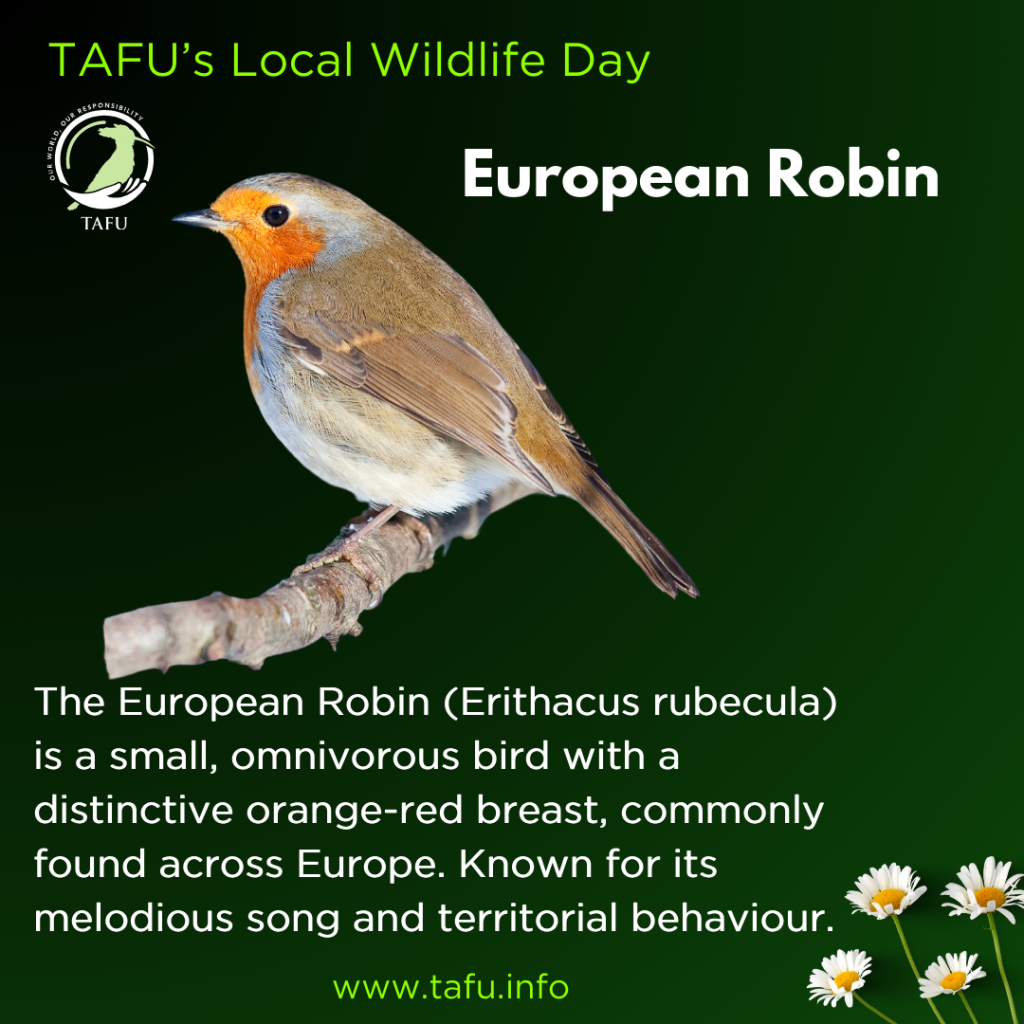European Robin
As part of the countdown to TAFU’s Local Wildlife Day on the 11th of July – Species no. 24.
Stay tuned – 19 more days and 19 more species until then!
The European Robin (Erithacus rubecula) is a small, round bird measuring about 12.5-14 cm in length and weighing around 16-22 grams. Both males and females have a bright orange-red breast and face, brown upperparts, and a whitish belly, making them easily recognisable. Juvenile robins, however, lack the red breast and are speckled with golden brown.
These robins are highly adaptable and are commonly found in a variety of habitats, including gardens, woodlands, parks, and hedgerows. They are also often found in spruce woods as well as urban and suburban areas. They are resident birds in much of their range, though a small minority migrate south for the winter.
European Robins are omnivorous, feeding on a diet of insects, spiders, worms, and other invertebrates, which they often catch by following gardeners and foraging in freshly turned soil. They also eat berries and seeds.
Robins are territorial and can be aggressive towards other birds, especially during the breeding season. They build their nests in a variety of locations, including tree cavities, hedges, and even unusual places like discarded items and outdoor equipment, effectively any tight space.
The female typically lays 4-6 eggs, which hatch after about two weeks. Both parents feed the chicks until they fledge after another two weeks. These robins can have 2-3 broods a year. The male often brings much of the female’s food during this time.
These birds are renowned for their beautiful song, which they sing nearly year-round. Males and females both sing, with the song serving to defend their territory and attract mates. Despite their cute appearance, robins are fiercely territorial and will defend their space aggressively.
We can all create bird-friendly gardens with plenty of shrubs and trees for nesting and maintain a supply of fresh water, basically keeping our gardens as natural as possible, as well as avoiding the use of pesticides can also help ensure a healthy population of insects for them to feed on.

